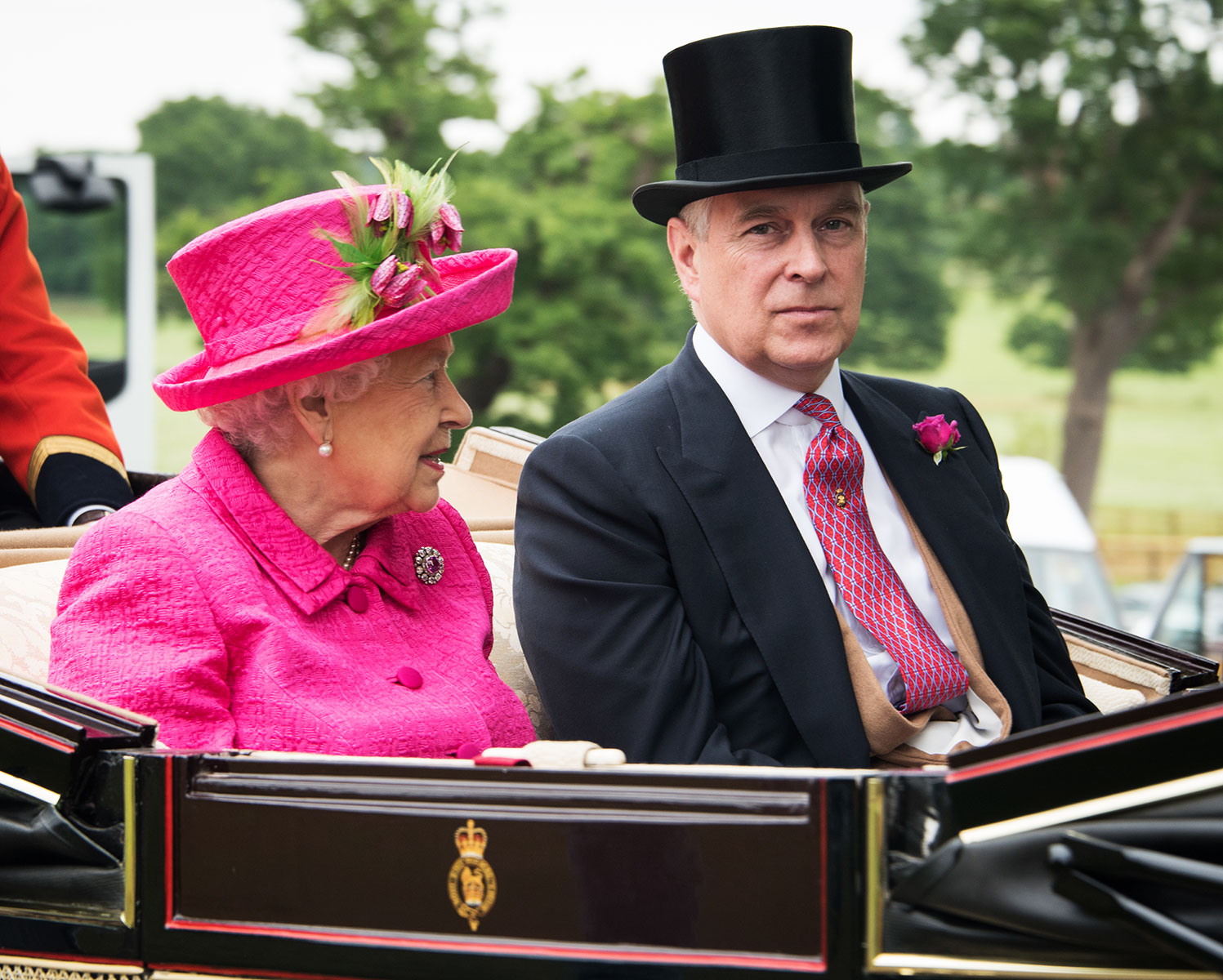“I am holding Prince Andrew accountable for what he did to me,” said Virginia Roberts Giuffre, adding that she “did not come to the decision lightly.” Now 38, she claims she was forced to have sex with a member of the British royal family while under duress and still a minor.
Prince Andrew — rumored to be the queen’s favorite son — has insisted he has no recollection of meeting Giuffre, though there is a photograph, taken in London in 2001, showing him with his arm around her waist. Also in the picture is Ghislaine Maxwell, currently imprisoned and pending trial in the US for allegedly procuring underage women for the late Jeffrey Epstein. Formerly a powerbroker-financier, Epstein was found dead in a New York City prison cell in August 2019 while awaiting a criminal trial for allegedly trafficking underage girls.
#MeToo: Power, Let’s Talk About It
Despite Prince Andrew’s denials, the case haunts him: In 2019, he stood down from his official duties after being widely condemned for his seeming indifference to Giuffre and his unconvincing account of his relationship with Epstein in a BBC interview.
From Palm Beach to Stockholm
On Giuffre’s account, she met Maxwell when she was 16 and working as a spa attendant at Donald Trump’s Mar-a-Lago club in Palm Beach, Florida. She claims Epstein and Maxwell then abused her sexually and pressured her to have sex with other men, including Prince Andrew. She says she had sex with him on many occasions between 2000 and 2002, at Maxwell’s home in London, Epstein’s New York City residence and on his private Caribbean island.
Of course, the two decades separating the offenses and the legal proceedings have made many wonder why Giuffre waited so long before bringing her case to public attention and, now, to the courts. The rise of #MeToo and the confidence the movement has given many previously constrained women is surely a factor. But to imagine Giuffre as an opportunist, who was never coerced but actually chose to remain under the iniquitous stewardship of Epstein, trivializes the deeper violence she endured. This was violence disguised as care, which Epstein used as his means of possession.
To understand how she, as a teenager, abandoned herself to a world that obliged her to give readily and fulsomely to any number of strangers, we have to try to trespass into her mind. She didn’t surrender herself to sex trafficking — this was her retrospective interpretation. More likely she became part of a glamorous milieu in which she wanted for nothing, at least in material terms. Was she fleeing her family? She has been quite silent about it, but her father, it seems, knew all about her first ventures with Epstein, having worked at the same place as his daughter did when she was approached. Was she attracted to a wonderworld where luxury and extravagance were normal? A combination, most likely.
It’s been suggested that Giuffre found herself in a Stockholm syndrome-like predicament. But this simplifies her experience. There were no captors with whom she learned to identify, only confederates. Today she talks about coercion, but there was no physical threat, as far as we know. Yes, she could have left, but for what? A return to the mundane, and perhaps a family life she found unappealing. Like anyone else, she had options, if you could call it that. Having been caught in a web woven by professional abusers from such a yet-unformed age, did she really see a way out? Our circumstances impose limits on how we’re able to exercise choice.
Giuffre accepted the values and followed the norms of her new culture in a manner somewhat reminiscent of religious cult converts who tiptoe into what strikes them as a strange and unfamiliar environment but adjust and become part of what becomes a new normal. After that, her logic would have changed and any asperse against Epstein and his accomplices lacked plausibility. How could they be such bad people while they were providing lavish gifts and travel by private jet to exotic parts of the world? And how could a woman act so inhumanly against the interest of so many other women?
Henchwoman?
The role played by British socialite Ghislaine Maxwell, daughter of Robert Maxwell, is still not completely clear. (Robert Maxwell was a media mogul, who fell to his death from his £15-million yacht off the Canary Islands, aged 68, in 1991. There was talk of suicide or murder by Mossad, the Israeli intelligence service.) The FBI is currently investigating Maxwell, who had an affair with Epstein and worked for him, recruiting staff to work in his mansions and girls to give him massages. Giuffre has said Maxwell procured underage girls for Epstein.
Maxwell has issued a denial, though an affidavit by a woman filed in a separate case in February 2019 claimed she had visited Epstein’s island in 2006 and seen many girls, some “young teenagers,” who had been recruited by Maxwell. Ghislaine Maxwell has denied any wrongdoing and may or may not be a key figure. Until she appears in court under oath, we can only surmise. But the optics are not promising.
Giuffre portrays Maxwell as someone who had Epstein’s unshakable confidence. Maxwell was apparently awestruck by powerful men like Epstein and Prince Andrew. The girls encouraged each other to treat Maxwell worshipfully or risk the consequences. Presumably, they thought she would safeguard the girls; Maxwell was, after all, a woman — and a mature woman — in a conclave dominated by men. She may have been abrasive and unapproachable, but she was still a woman, albeit one who, in the presence of men, “groveled around like a groupie.”
Maxwell’s relationship with the girls must have been complex. We can only imagine that their trust in her was laced with trepidation, and any confidence they had in her would have been tempered by her deference to Epstein. It must have been destabilizing, perhaps devastating, to realize that far from being a protector, Maxwell might have been a henchwoman.
Ingénue?
We can’t tell for sure whether Giuffre was the ingénue her narrative suggests, but it’s not necessary to assume she either had wisdom beyond her years or the naiveté of a child. Like the other recruits, she probably took a juvenile pleasure from the leverage conferred by her youthful good looks. There is even the possibility that a world of wealthy hedonists was to her liking. It was, as Sarah Ditum reminds us, after all, a time when “barely legal” was a commonly accepted trope that elicited no more than a wink from the onlookers; girls caught up in these situations did not yet have the vocabulary to understand themselves to be victims. Equally, there’s no reason to suppose Giuffre was aware of the destructive afterlife of this world.
Alternatively, she may have experienced, in common with a great many women in abusive relationships, the terrifying prospect of nihilism, the absence of solidity and permanence that might await them if they leave. The simplistic “Why didn’t she just go?” often has no answer that makes objective sense. Fight is not an option. Flight seems petrifying. Staying put sometimes appears the best of three bad choices.
Some will say that any person, particularly a woman, who engages in sex for payment is a prostitute. But the term disguises not only the range of relationships and roles in what we now call the commercial sex industry but the gamut of motivations and circumstances contributing to someone’s position in an enterprise (if I can call it that). It’s doubtful that Giuffre ever set out to dispense sexual favors for money, though she probably had no qualms about using them to advance her own interests. She probably never thought she was doing that, anyway.
More likely she just assumed that sex was just part of her duties, which were to supply contentment, repose and a sense of wellbeing to Epstein’s friends. She said of her first meeting with Epstein: “He was laying naked on top of a massage table … I’m a 15-year-old girl and seeing him on the table was weird.” But familiarity probably made it less weird, and living in Epstein’s domain probably inclined her toward a docile observance of daily routines so that giving massages to naked men seemed as quotidian as doing grocery shopping. Yet she has survived and appears to be recovering. Her vengeance is probably part of her recovery.
Beyond Reproach?
How this will play out for Prince Andrew and, indeed, for the Windsors, is uncertain. After Prince Harry’s withdrawal and his apparent enthusiasm for sharing family secrets with anyone prepared to listen, a sex scandal is likely not on the royal family’s list of priorities. Andrew’s intransigence and his unwillingness to cooperate with police inquiries invite speculation. Were he an entertainer, such as an actor or a pop singer, this would be manna from heaven. But he isn’t: He is the son of a monarch, a nobleman and, as such, regarded as a person beyond reproach.
The royal family is now properly in crisis. The once-great rulers of a once-great nation struggle defiantly to find anchorage after casting itself adrift of its historical mooring. Even Princess Diana has reappeared like an unwelcome albatross thanks to revelations of Martin Bashir’s untoward behavior in securing her notorious 1995 interview. The family has survived crises before and will survive this one, but not unscathed.
Andrew now has a dilemma like no other. He must choose between two equally daunting options. He’ll maintain his innocence, of course. But a refusal to appear in court to defend himself may be interpreted as timorousness. In a civil lawsuit, the court has no power to compel attendance, but the prince could still be tried in absentia and face possible damage to his character and, by implication, the crown’s.
A more robust response, on the other hand, could yield the wrong result and perhaps prosecution, in which case the crisis will become a cataclysm for the royal family — and long-awaited justice for countless women like Victoria Roberts Guiffre, who once found themselves trapped in the world of powerful men.
*[Ellis Cashmore is the author of “Kardashian Kulture.”]
The views expressed in this article are the author’s own and do not necessarily reflect Fair Observer’s editorial policy.
Support Fair Observer
We rely on your support for our independence, diversity and quality.
For more than 10 years, Fair Observer has been free, fair and independent. No billionaire owns us, no advertisers control us. We are a reader-supported nonprofit. Unlike many other publications, we keep our content free for readers regardless of where they live or whether they can afford to pay. We have no paywalls and no ads.
In the post-truth era of fake news, echo chambers and filter bubbles, we publish a plurality of perspectives from around the world. Anyone can publish with us, but everyone goes through a rigorous editorial process. So, you get fact-checked, well-reasoned content instead of noise.
We publish 2,500+ voices from 90+ countries. We also conduct education and training programs
on subjects ranging from digital media and journalism to writing and critical thinking. This
doesn’t come cheap. Servers, editors, trainers and web developers cost
money.
Please consider supporting us on a regular basis as a recurring donor or a
sustaining member.
Will you support FO’s journalism?
We rely on your support for our independence, diversity and quality.







